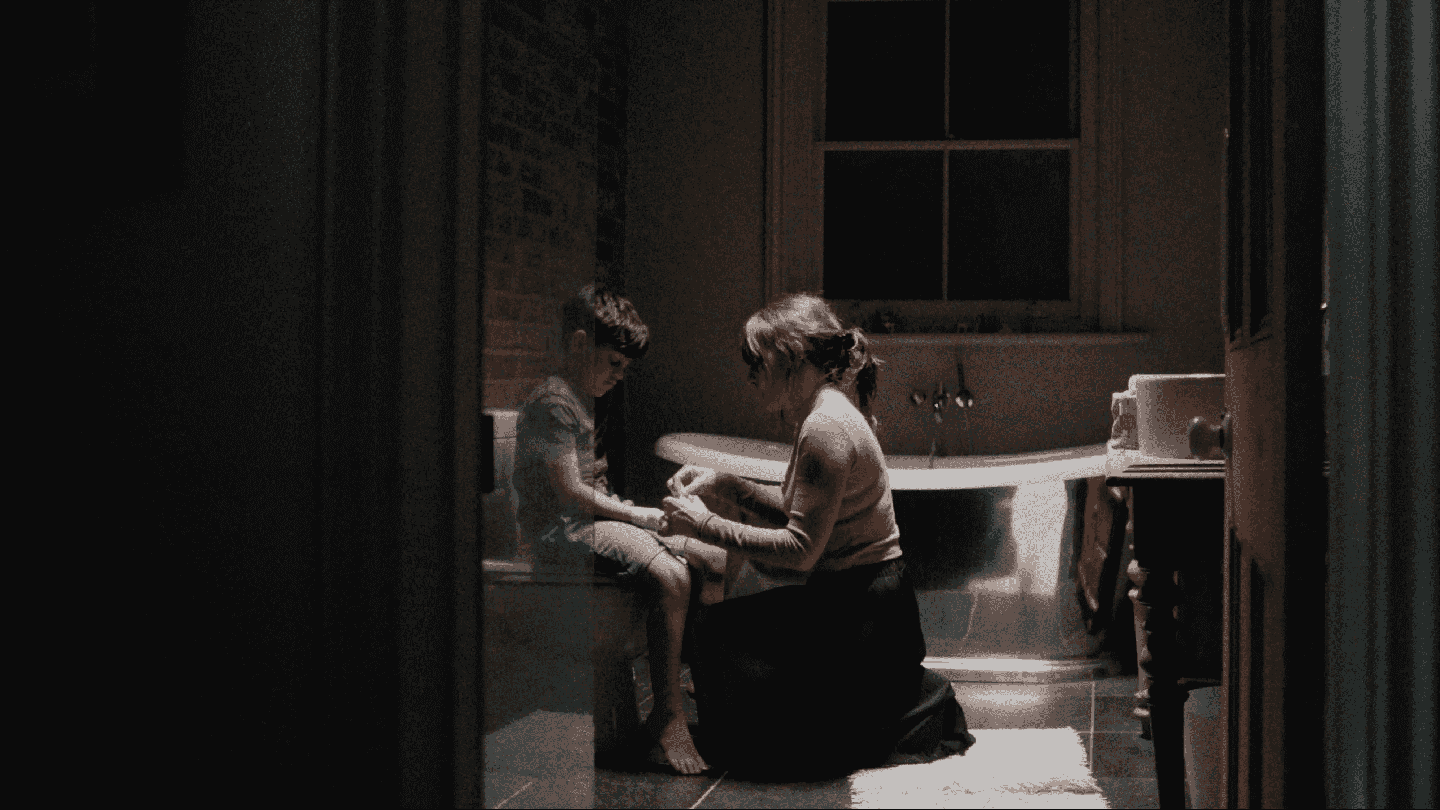Magnus Lyche’s 16-minute domestic violence drama Ghoul showcases the experience from the perspective of the child in the household. His sole line of defence, his mother, mediates it for him. As she turns their environment into a digestible fairytale for him—with the concomitant expectation of eventual salvation—the film lays out the powerlessness of it all.
Louie (Ewan McLatchie) and Mum (Anna Wilson-Jones) live with his step-father (Philip Bulcock) in his step-father’s house. The film opens with the voice of Louie’s mother tucking him in with a bedtime story. Sydonie Calvert and Lyche’s screenplay cleverly starts the story with the figure of the kindly king, who invites a woman and her child to live in his castle with the promise of a happily ever after. Fiction imitating reality, the ghoul only appears later in the story after promises have been made and invitations accepted. Wilson-Jones’s soothing voice masks the violence that is ever-present outside Louie’s bedroom door. Indeed, the film creates a general picture of warmth and domestic bliss but the undercurrents of tension ruptures Louie’s mother’s delicate lie of comfort and safety.
Louie imagines the ghoul’s shadow when his step-father is on the prowl, swaps out his screaming voice for the growl of the imaginary monster from the fairytale. In all, the cinematography reproduces Mum’s lie and Louie’s adherence to it. It is essential to sustaining their possibility of happiness while remaining locked in the ghoul’s castle. A carefree scene in the kitchen is the epitome of this. Bookended on both ends by the rupture in their facade of domesticity, Louie and Mum spend a blissful afternoon cooking and dancing amidst laughter and music. The sunlight is more diffused than ever, the music soft, the slow-motion montage spelling nothing but joyous affection.
Though the film uses raised voices to signify trouble, it uses silence more and with better effect. Silence precedes trouble, and thus leaves Louie and the audience in continual apprehension over when and how the storm will break. A sense of horror pervades the atmosphere with such determined reach that one can taste it.
The gentleness of the horror is Mum’s and the film’s accomplishment. For Louie, the ability to deny the depth of trauma and danger keeps him relatively safe, a gift from his mother. For the audience, the monster that is always within reach ceaselessly underscores the fragility of the duo’s peace and the terrifying violence with which it can be shattered.
The climax is a realistic tragedy, leaving open the limits of imagination in lives as fraught as Louie’s. The eventual arrival of the knight in shining armour remains awaited, along with the key to the castle doors. One day Louie and Mum may get out, but is today likely to be that day?
Ghoul: Living in Sweetened Horror for A Mother-Son Duo
-
Direction
-
Cinematography
-
Screenplay
-
Editing
-
Music
